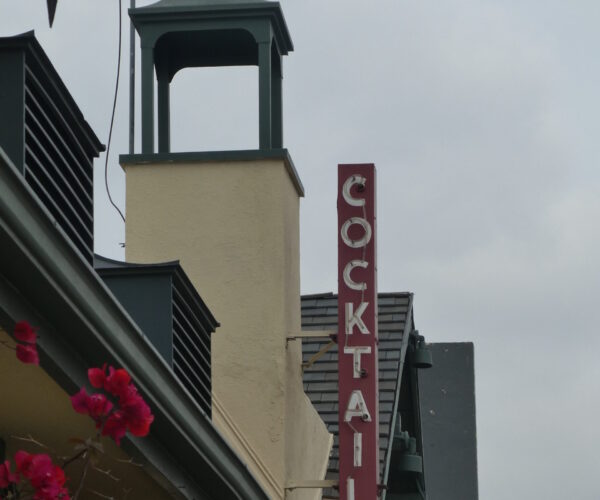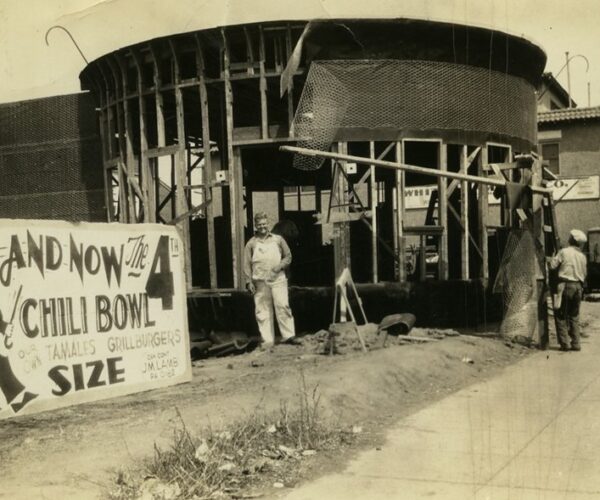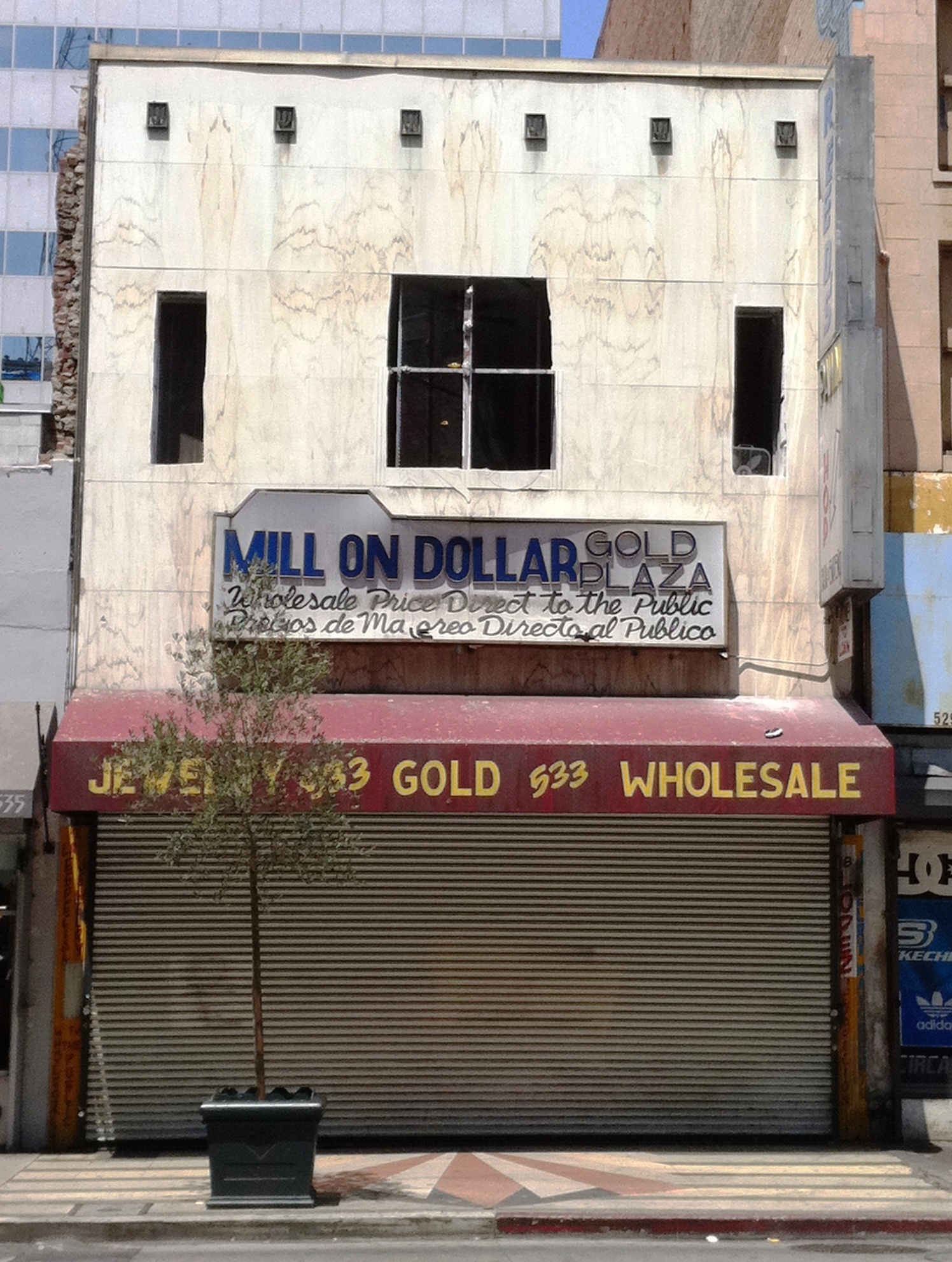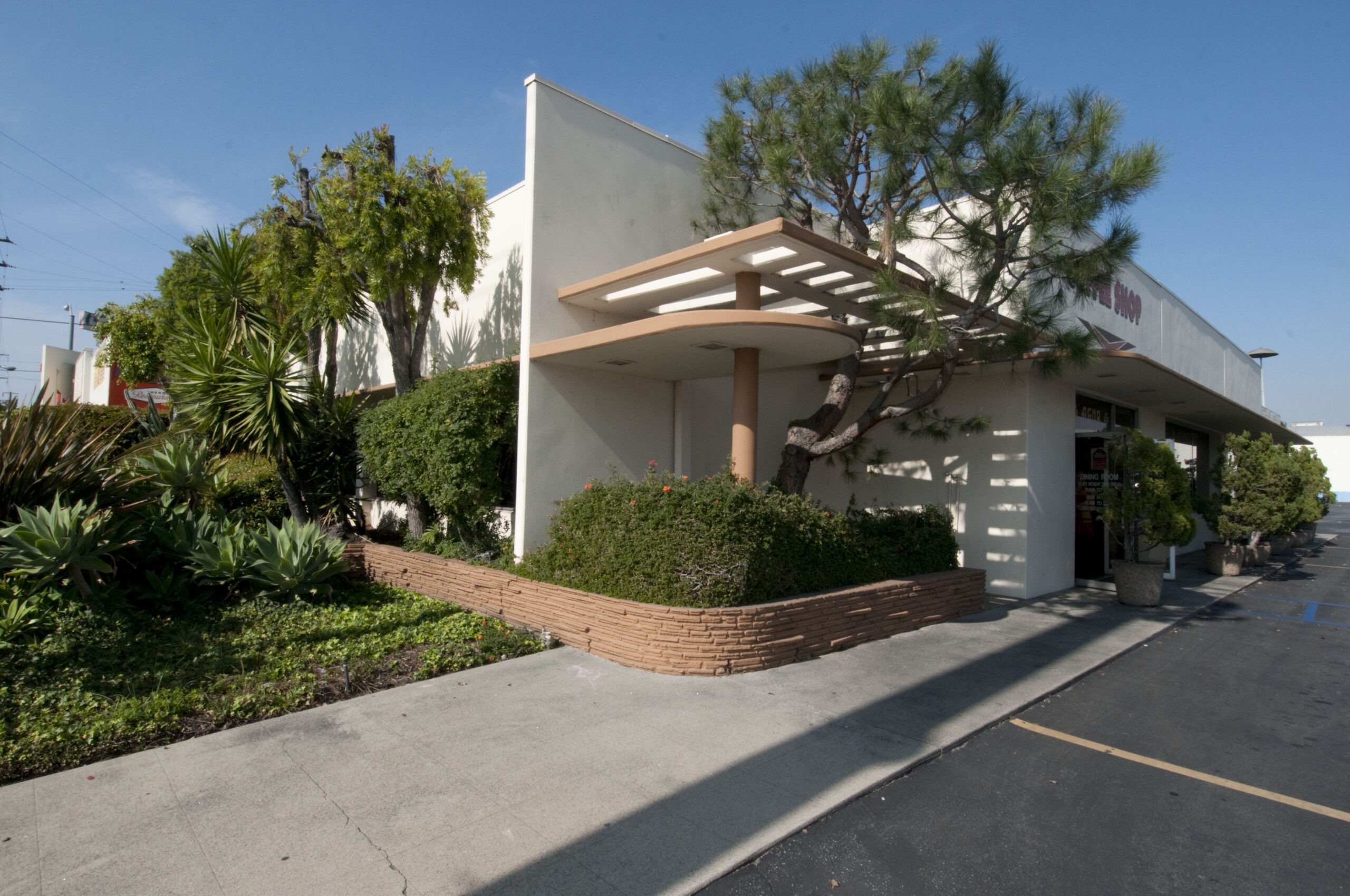
Place
La Villa Basque
A unique landmark in the industrial city of Vernon for over half a century, its unique hybrid of coffee shop, lounge, fine dining establishment, and event space served everyone from truck drivers to wedding parties.
Lost
Despite our best efforts, significant change ruined the authentic character of La Villa Basque.
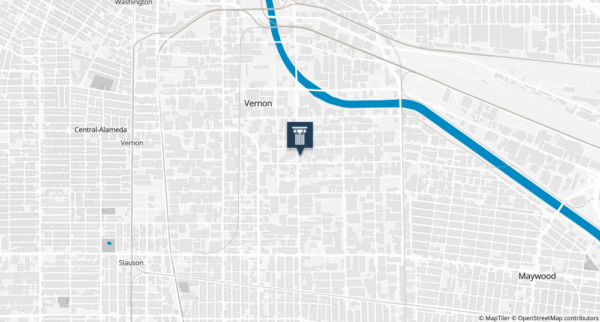
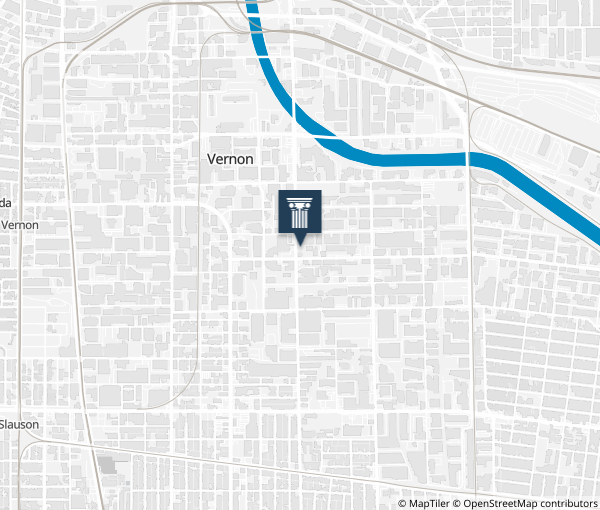
Place Details
Address
Architect
Decade
Designation
Property Type
Community

Photo by Larry Underhill
Overview
Built in 1960, La Villa Basque was a landmark in the industrial city of Vernon for over half a century. Its unique hybrid of coffee shop, lounge, fine dining establishment, and event venue served everyone from truck drivers to wedding parties.
The building’s exterior featured rough-textured walls clad in stone aggregate. The door surrounds and lower elevations featured stone-like “flagcrete,” a masonry building material popular with coffee shops whose trade name is derived from “flagstone” and “concrete.” The façade included perforated, geometric openings in projecting walls and roof canopies. The exuberant signage was unmistakably sixties, incorporating the four-pointed Lauburu (traditional Basque cross). This motif also graced the wrought iron grillwork at the entrance to the main dining room. The interior contained a formal dining area, lounge, and coffee shop.
Original finishes included hallmarks of Googie coffee-shop architecture, such as polished terrazzo flooring; Formica-clad countertops; wall surfaces of flagcrete, wood-paneling, and perforated Masonite; and mosaic tile-clad accents.
Most of these finishes have been covered or replaced. The main entrance featured a custom fireplace with a mosaic tile-clad basin and metal ventilation hood. The fireplace basin was supported by a flagcrete post, designed with gas jets rising above the water-filled pool. La Villa Basque also contained original custom light fixtures, many of which have been replaced.
About This Place
About This Place
La Villa Basque was significant for its cultural associations as a Basque-themed business, representing one of Vernon’s most prominent families and Basque heritage in Los Angeles. It was established by Leonis C. Malburg, an important political figure in Vernon’s twentieth-century history, whose great grandfather, Basque immigrant John B. Leonis, was one of the city’s original founders in 1905.
Prominent portions of the exterior feature perforated, geometric openings in projecting walls and roof canopies. Exterior signage at La Villa Basque included the prominent rear-lit acrylic sign spelling La Villa Basque and incorporated the four-pointed Lauburu, or traditional Basque Cross. The entrance doors to the formal dining room portion of the building featured wrought iron grillwork ornamented with Lauburus.
The restaurant interior contained several distinct spaces, including the formal restaurant dining area, the coffee shop, the bar, and banquet rooms. The interior of the building was highly intact, featuring numerous original finishes that are character-defining features of Googie coffee shop architecture. These include the polished terrazzo flooring, Formica-clad coffee shop counter, wall surfaces featuring flagcrete, wood-paneling, and perforated Masonite, and mosaic tile-clad accents in numerous locations including the coffee shop. The interior entrance to the restaurant portion of the building contained elements such as a custom fireplace featuring a mosaic tile-clad basin with a metal ventilation hood above. The fireplace basin is supported by a flagcrete post, designed with gas jets rising above the water-filled pool.
Another significant interior feature was the numerous custom light fixtures, many suspended from the ceiling. The coffee shop featured perforated, cone-shaped light fixtures while the bar contains pendant fixtures with woven shades. The dining room featured large chandeliers with upright lamps while the banquet room areas feature large fixtures with globes and metal disks suggesting industrial cogs. Several additional distinctive fixtures that were found throughout the interior space, including the torch-like sconce near the entrance door to the formal dining room space and the integrated clock set into the wood-paneled wall at the entrance to the coffee shop.
Our Position
Despite our best efforts, significant change ruined the authentic character of La Villa Basque, a French/Basque restaurant in the industrial City of Vernon. The 1960 eatery was long recognized for its remarkably intact Googie architecture and authentic sixties design.
La Villa Basque hosted the Los Angeles Conservancy’s annual volunteer appreciation party in 2010, and it appeared in a scene from the hit TV drama Mad Men (recipient of the Conservancy’s 2011 Media Award).
In early 2011, we learned that the business had changed ownership. Conservancy staff reached out repeatedly to the new management. They met with us briefly, assuring us that they were not making significant changes. We offered to advise on sensitive upgrades and to help promote the site as a truly special, highly intact historic destination. We encouraged them to use its authentic character as a distinct asset, from marketing to filming.
We went to the site to find the banquet rooms being gutted and combined into one event space. Custom wooden screens and other original features were subsequently removed from the main dining area and entry, along with some built-in furnishings.
In a Los Angeles Times article about the restaurant, Mad Men creator and executive producer, Matthew Weiner, spoke out in support of preserving its authentic character.
Yet management continued its work unabated, including covering the original terrazzo flooring, removing wooden screens, replacing the original coffee shop countertop, and removing the distinctive exterior signage.
The City of Vernon has no protections for its historic resources. There was no legal way to prevent the continued loss of La Villa Basque’s exceptionally intact design.
